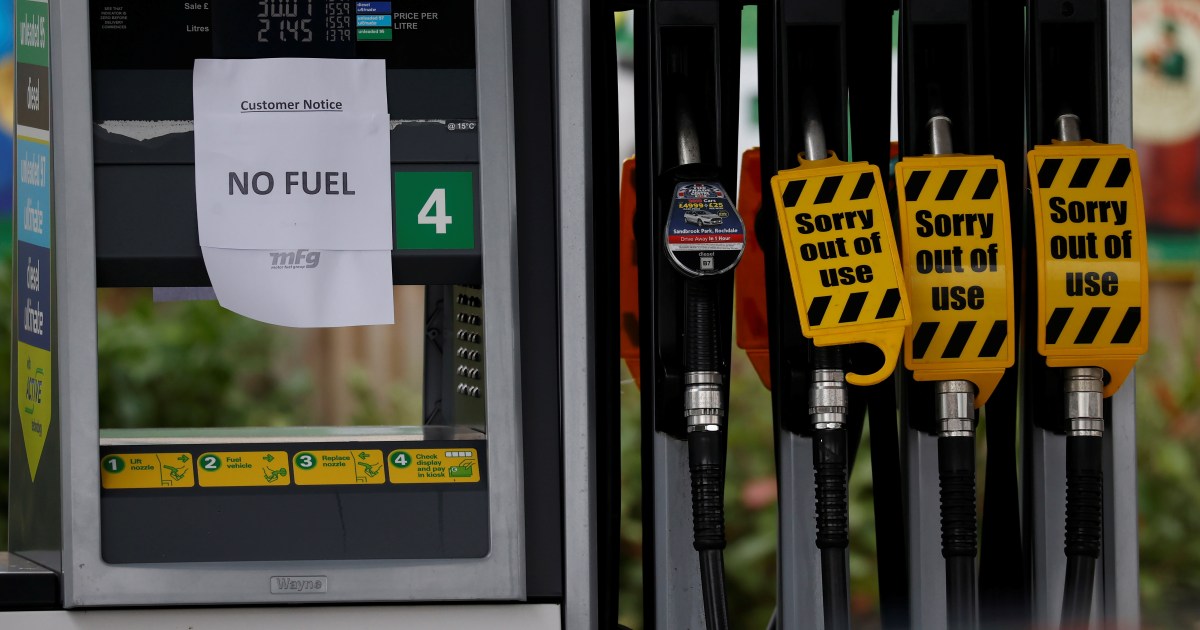The United Kingdom appears to be entering a new era of uncertainty and unpredictability, with a severe fuel crisis that worsened over the weekend.
Columnist in the newspaper, Gabi Henslev, stated that this fuel crisis indicates an uncertain and more tense future, as the crisis erupted during the early hours of the morning last Saturday in all British cities due to a shortage in the number of truck drivers specialized in providing filling stations with fuel.
Professional associations of large truck drivers estimate that there is a shortage of drivers in the UK of more than 100,000 out of 600,000 drivers.
This figure includes tens of thousands of drivers belonging to European Union countries who are unable to return to the country, due to visa procedures for foreign workers following Britain's exit from the European Union (Brexit).
Hinslev sees the repercussions of Britons resorting to fuel hoarding, with teachers struggling to fill their car tanks to get to schools, nurses begging motorists to drive them to hospitals, and health care workers struggling to reach vulnerable groups in remote and isolated areas.
She fears that the British are beginning to shift from a "punctual" society to a "vigilant" one, whose members nervously wonder what they will run out of next.
She pointed out that the effects of the closure due to the outbreak of the new Corona virus and the consequent urgency for economic recovery impose global pressures on raw materials, all stages of production and supply chains, which were exacerbated by the Brexit that took place without reaching a trade agreement and in a clumsy way.
Despite the presence of large quantities of fuel in refineries - the writer adds - the shortage of truck drivers needed to deliver them to filling stations is what led to people rushing towards them to obtain their needs of this vital material.
But above all, the mere scarcity of something leads people to think in a mentality of scarcity, nervous and selfish "where survival itself is the greatest concern, and the rushing can every time make the possibility of a new crisis exist."
stupid bunch
Henslev noted that gas stations are not drying up mainly because of "a bunch of idiots" rushing to fill their gas cans, but because millions of people consider such behavior rational, causing mass chaos.
The writer believes that the first step to breaking this vicious circle is clear, and lies in honest and trustworthy leadership, which means that resolving the crisis would be easier if British Prime Minister Boris Johnson did not preoccupy the last two years with presenting contrary proposals.
If this is not possible, then the authors of emergency plans and psychologists unanimously agree - according to Henslev - that in order to avoid provoking panic shopping, it is better not to use the phrase “panic”, which makes people think that there is cause for panic and panic, and there should not be talk about a scarcity of materials, which is what Immediately there will be a fear of scarcity.

